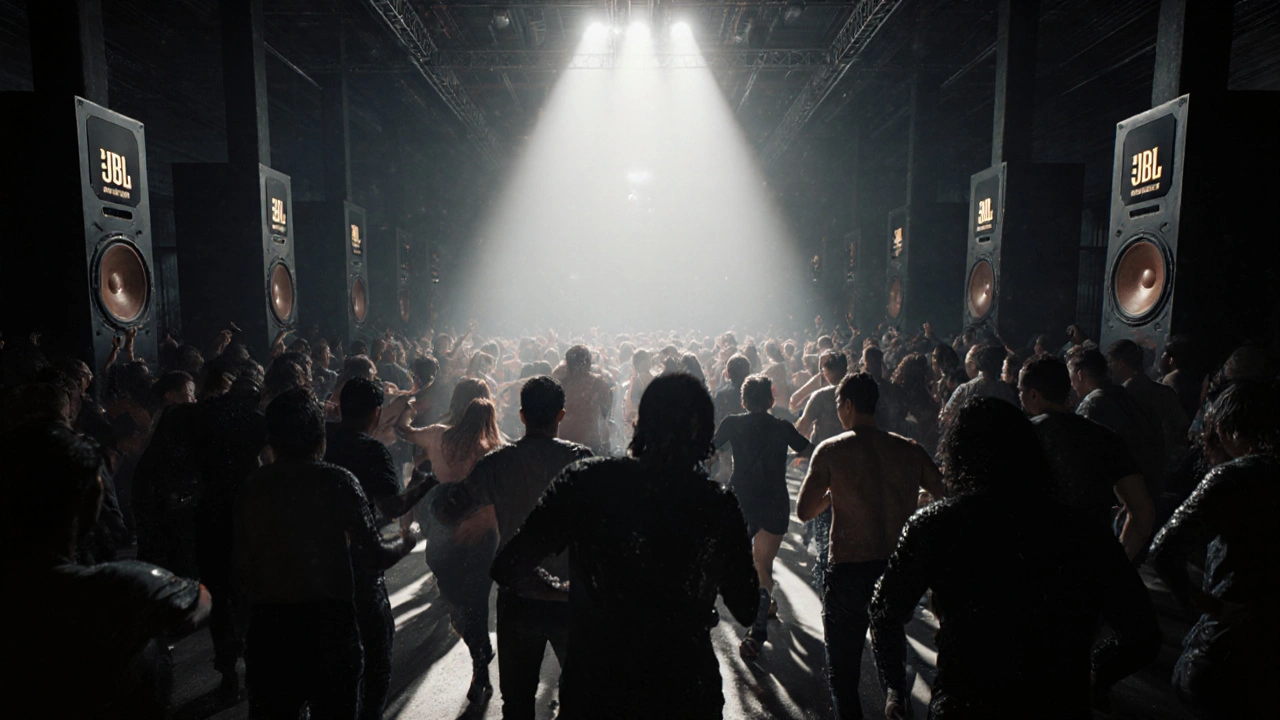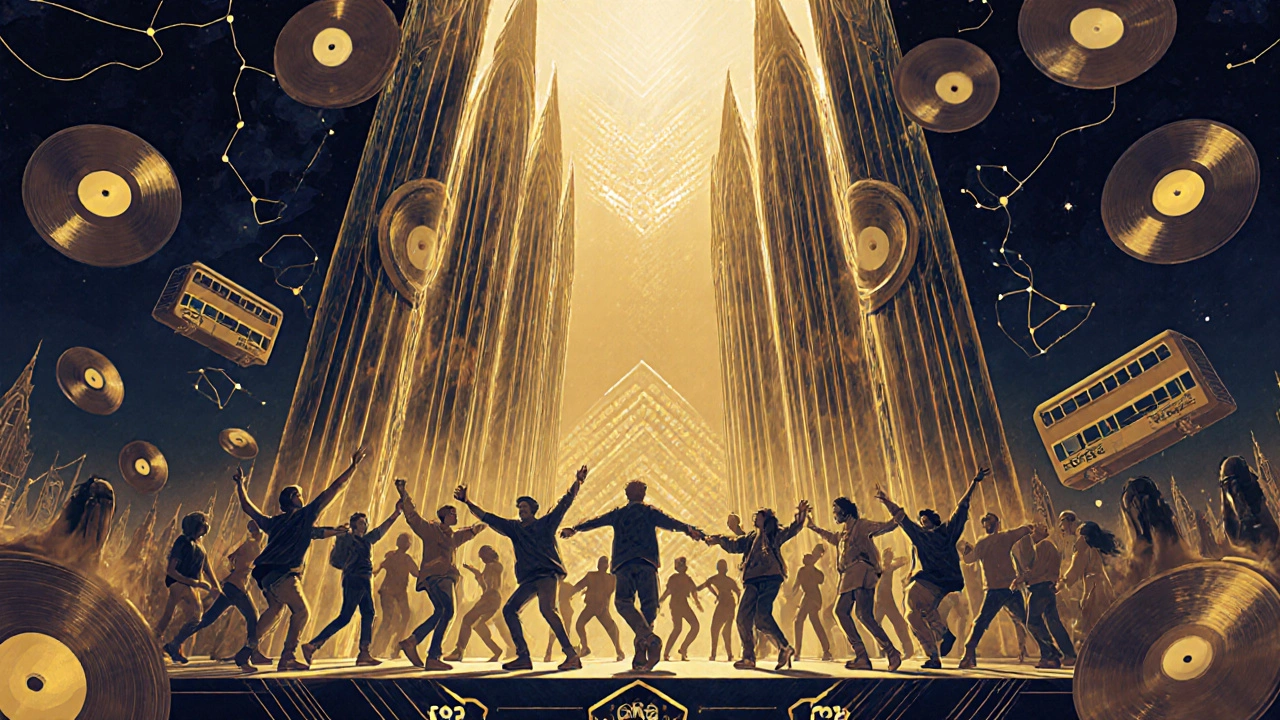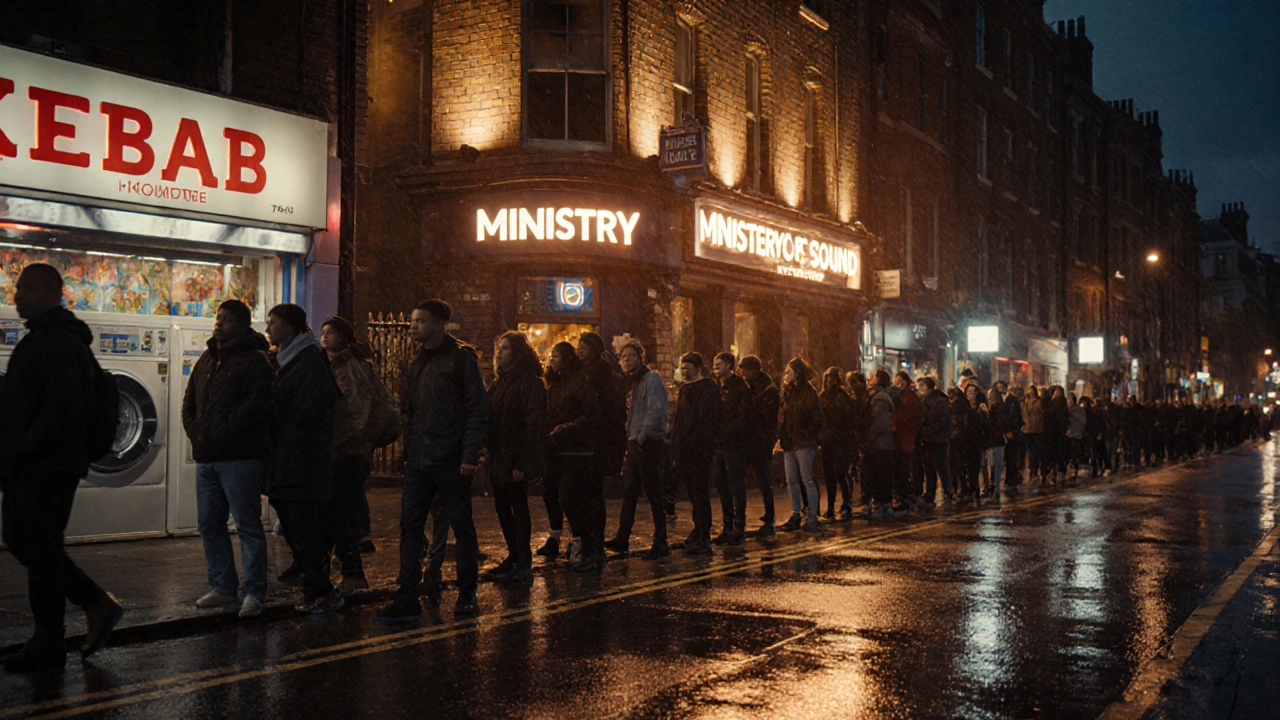In London, where the rhythm of the city never sleeps, few places capture the soul of its nightlife like the Ministry of Sound. Nestled in Elephant & Castle, just south of the Thames, this isn’t just another club-it’s a pilgrimage site for anyone who’s ever lost themselves in a bassline. Since 1991, it’s been the beating heart of London’s electronic music scene, drawing in everyone from South London teens on their first night out to seasoned DJs who cut their teeth on its iconic sound system.
How Ministry of Sound Became London’s Soundtrack
Before Ministry of Sound opened its doors, London’s club scene was scattered-rough warehouses in Shoreditch, basement bars in Soho, and the occasional rave in a disused railway arch. But when Simon Raine and Paul Oakenfold turned a former bus depot into a temple of sound, everything changed. The club didn’t just play music; it curated it. The first night, they featured a live set from Paul Oakenfold, a name already legendary in the UK rave scene after his sets at The Haçienda and Cream. That night, the crowd didn’t just dance-they felt something deeper. The sound system, designed by Tony Collett and built with custom JBL speakers, wasn’t just loud. It was precise. Every kick drum hit like a heartbeat. Every synth ripple traveled through your chest before your ears caught it.
By 1993, Ministry of Sound had released its first compilation album. It sold over a million copies in the UK alone. Suddenly, you didn’t need to be in London to feel it-you could buy the tape at a Woolworths in Manchester or a HMV in Bristol. But if you wanted the real thing? You came to Elephant & Castle.
The Experience: More Than Just Music
Walking into Ministry of Sound feels like stepping into a cathedral of sound. The main room, known simply as ‘The Room,’ is a long, narrow space with a high ceiling and walls lined with speakers that hum with anticipation. There’s no flashy LED screens, no VIP bottle service distractions. Just darkness, sweat, and the music. On a Friday night, the queue snakes down the street-past the kebab shop on the corner, past the 24-hour laundrette, past the bus stop where the 38 still runs past midnight. People come in hoodies and trainers, in heels and sequins, in suits after work. It doesn’t matter. Once you’re inside, you’re part of the same tribe.
Weekends are different. Saturdays are for house and techno-think artists like Charlotte de Witte, Honey Dijon, or Moodymann. Sundays are for deep house and disco, often with live vocalists and soulful grooves that make you forget you’re in a former bus depot. There’s also the ‘Tunnel,’ a lower-level space with a darker, harder edge, where bass-heavy dubstep and drum & bass shake the floor. And if you’ve ever wondered why people talk about Ministry like it’s sacred? It’s because the acoustics are engineered to make every track feel personal-even when 2,000 people are dancing beside you.

London’s Nightlife, One Beat at a Time
Ministry of Sound didn’t just survive London’s nightlife wars-it defined them. While clubs like Fabric closed and Printworks shut down, Ministry kept going. Why? Because it never chased trends. It chased truth. It’s the same place where a 17-year-old from Croydon heard ‘The Prodigy’ for the first time, where a Nigerian expat in Peckham found community through Afro-house nights, where a retired nurse from Lewisham still comes every other Thursday for the ‘Soulful Sundays’ set. This isn’t a club for tourists. It’s a club for people who live here.
And Londoners know how rare that is. In a city where rent hikes push out independent venues and licensing laws strangle late-night culture, Ministry of Sound remains defiantly itself. It’s not owned by a global conglomerate. It’s not plastered with sponsor logos. It’s run by people who grew up listening to pirate radio on a broken stereo in their bedroom. That’s why, when the club celebrated its 30th anniversary in 2021, thousands of Londoners showed up-not just to party, but to say thank you.

What to Expect When You Go
If you’re new to Ministry of Sound, here’s how to make the most of it:
- Get there early-lines grow longer after 11 p.m., and the best music is often before midnight.
- Check the lineup on their website. They host themed nights: ‘Classic House’ on Tuesdays, ‘Rave Classics’ on Fridays, and ‘Bassline’ on Saturdays.
- Wear comfortable shoes. You’ll be standing for hours on concrete floors.
- Bring cash. While card payments are accepted, the bar runs faster with notes. And yes, they still sell £3 cans of Red Stripe.
- Don’t skip the rooftop terrace. On warm nights, it’s the quietest place in London to catch your breath and watch the city lights.
And if you’re lucky enough to be there on a Monday night? You might catch the ‘Ministry of Sound Radio’ live broadcast. It’s the only place in London where you can hear the same tracks that play on BBC Radio 1 Dance-but in a room where the bass is so thick you can taste it.
Why It Still Matters in 2025
London has changed. The Tube is more crowded. The cost of living is higher. Even the pubs on the South Bank have turned into cocktail bars with £18 gin and tonics. But Ministry of Sound? It’s still the same. The same speakers. The same smell of sweat and incense. The same sense that, for a few hours, nothing else matters.
It’s where you go when you need to forget the office, the rent, the Brexit chaos, the endless news cycle. It’s where you go when you need to remember what it feels like to move as one body with a thousand strangers. In a city that’s always rushing, Ministry of Sound gives you permission to slow down-just long enough to feel the beat.
And that’s why, after more than 30 years, it’s still the most important club in London. Not because it’s the biggest. Not because it’s the flashiest. But because it’s the one that never stopped listening to the people who made it.
Is Ministry of Sound open every night?
No, Ministry of Sound doesn’t open every night. It typically operates Thursday through Sunday, with special events on Mondays for radio broadcasts or themed nights. Always check their official website for the current schedule, as events change seasonally and holidays may alter opening times.
Do I need to book tickets in advance?
Yes, especially on weekends and for big-name DJs. Tickets often sell out days in advance. You can buy them through their website or via Ticketmaster. Walk-ins are rarely allowed, and the door policy is strict-no ID, no entry. Bring a valid photo ID, even if you look 25.
Is Ministry of Sound worth the price?
At £15-£25 for entry, it’s not cheap-but it’s one of the few clubs in London where the sound system, lighting, and curation justify the cost. Compare it to a £10 club with tinny speakers and a DJ playing Spotify playlists. Ministry delivers professional-grade audio that you can’t get anywhere else in the city. For music lovers, it’s a rare value.
Can I get a taxi home after closing?
Yes, but plan ahead. The last Tube on the Northern Line stops around 12:30 a.m., and the club doesn’t close until 2 a.m. Uber and Bolt are reliable, but prices surge after midnight. Consider booking a ride before you go in, or take the 38 bus-it runs all night and stops right outside. Many regulars swear by the 38 as the most London way to leave.
Is Ministry of Sound family-friendly or suitable for beginners?
It’s not a family venue-no one under 18 is allowed, and the atmosphere is adult-oriented. But for beginners? Absolutely. Many nights are welcoming to newcomers, especially ‘Soulful Sundays’ or ‘Classic House’ nights. Staff are used to first-timers, and there’s no pressure to dance hard or dress a certain way. Just show up, be respectful, and let the music guide you.
